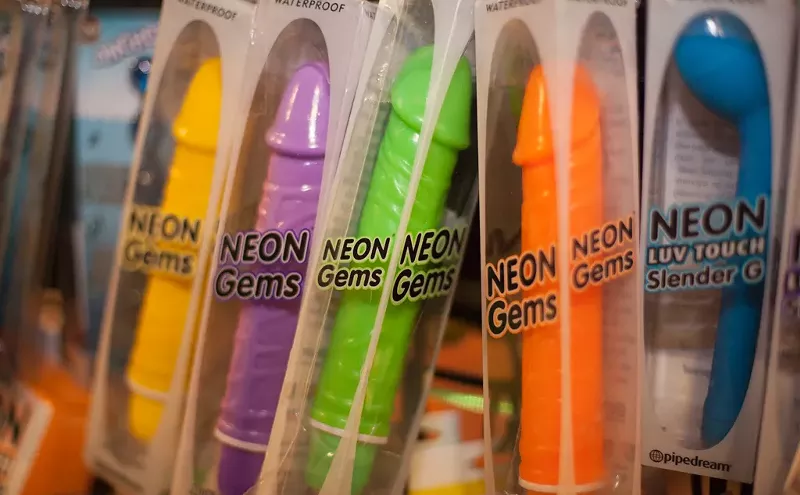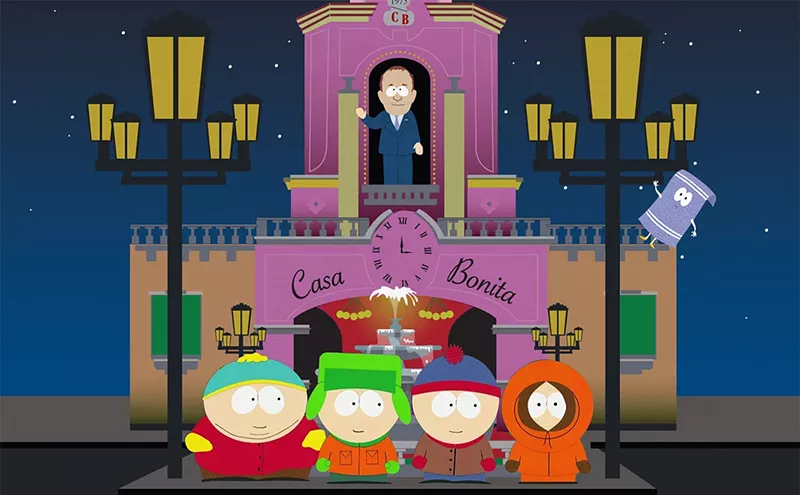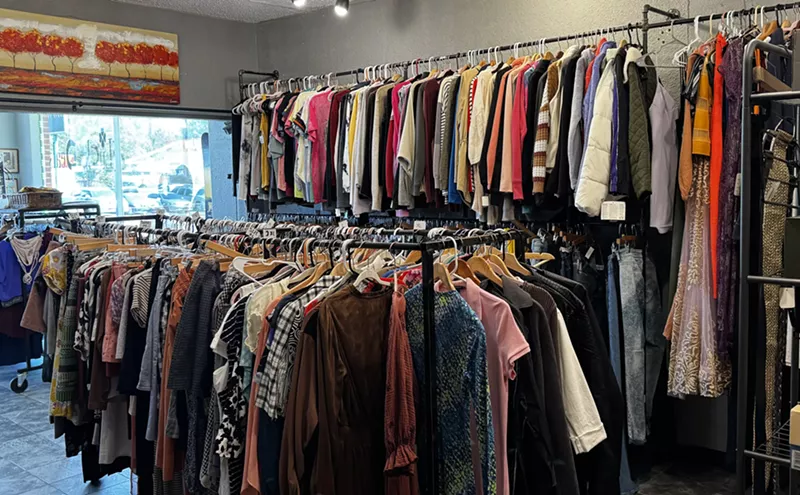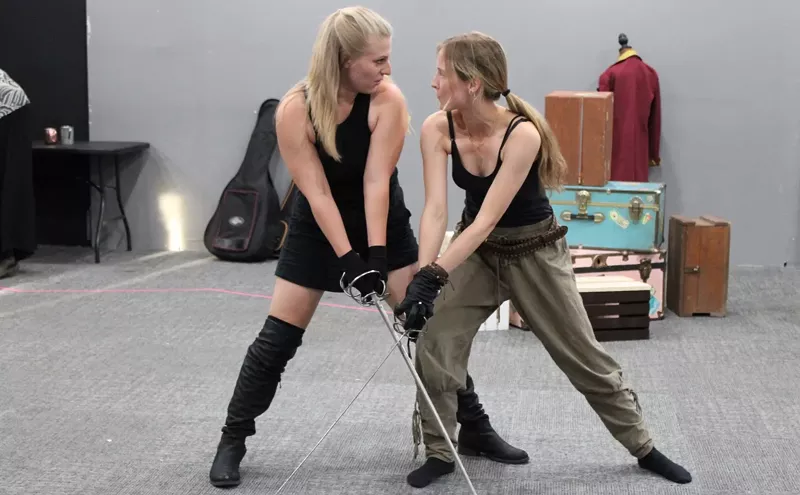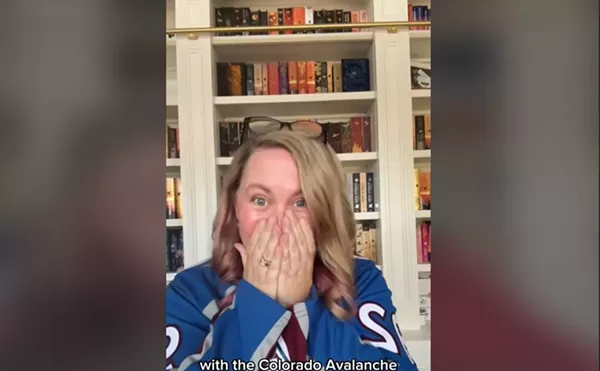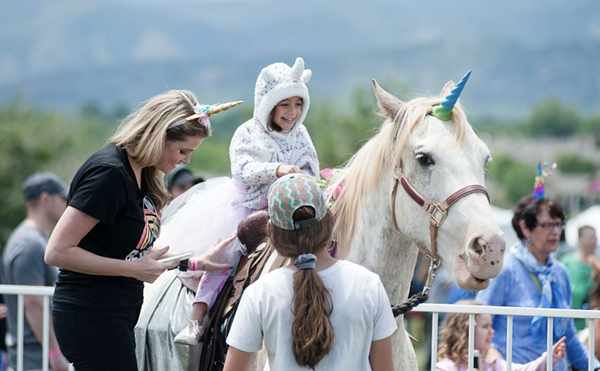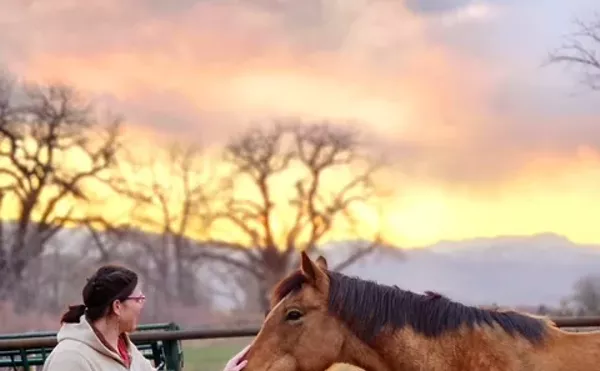This weekend, the 3rd Annual Cinema Q Film Festival takes over the Denver Film Center/Colfax, with Dominguez's Photos of Angie playing the opening last night. Dominguez took time to sit down with Westword and share what he learned, his future plans and getting the side of the killer.
Westword: Why did you choose Angie Zapata's case for the subject of your film?
Alan Dominguez:: This case had a number of ironies for me, which is what I love in a good film. The fact that Angie was from a traditionally male-centered culture, working class, living in a smaller city and, at the same time, trying to find herself in those environs. It really intrigued me. People who find themselves going against society's current have always fascinated me. Also, the conservative fabric of Greeley got my attention, and how this type of prosecution had been attempted before in much larger cities, but to no avail.
Had you met Angie or the family before making the film?
I had no contact with them previously and really only casually followed the trial and case. It was Melanie Asmar's Westword coverage of the case that really got my interest going in a comprehensive direction.
Did you get any resistance from the Zapata family at any point during the making of the film?
Not at all. In the beginning, they were not easy to get in touch. I first tried to make contact with them about six weeks after the trial, but it was a slow process. It hadn't even been a year since Angie's death. They were not only in mourning, but they really wanted their lives to return to some sort of normalcy. There were a lot of people who acted as go-betweens for them, to protect their privacy, and they ended up being part of the film.
The go-betweens ended up in the film as well?
Yes. The go-betweens were Adam Bass of GLAAD and Kelly Costello of the Colorado Anti Violence Program. Their interviews were very important to completely contextualize the trial and the behind the scenes work that was happening.
How did the community react to your making a film about Angie?
I was really moved by how willing everyone was to participate in any way they could. I interviewed Ken Buck during his Senate campaign and I was especially impressed by his willingness to go on the record at a time when it was not politically convenient for him to do so. Mr. Buck and I may differ politically, but we left the interview with a palpable mutual respect for what we were trying to do. What did you want to accomplish in making this film?
I'm really trying to create a larger sense of gender awareness by taking a thoughtful look at Angie's life and its context. There is a point in the film where the focus shifts from Angie to her killer. Through recorded phone calls, he makes some horrific statements. I believe that those thoughts are commonly held beliefs. So the larger effort is to not only inform the audience about Angie but also to challenge them and make them take an honest look in the mirror, myself included.
Do you think you were successful?
I hope I'm successful with challenging people's perceptions. Mine weren't necessarily challenged, but I did have to explicitly answer some questions for myself that I had never really thought about before.
What sort of influence do you think this film will have on the GLBTQ community?
I really hope that the film can become a tool for awareness and education. The film is direct and has an edge to it which I hope will push the audience to be self-reflexive. I hope that the GLBTQ community will be able to identify with Angie and find the courage to continue to be themselves. I just hope that anyone who sees this film will take a look in the mirror with honesty and integrity.
Have you ever focused on queer topics before?
No, but the common thread for me is trying to give a voice to those that have a hard time finding one. Angie was from a small town (Fort Lupton), of a marginalized ethnicity, of modest socio-economic means, and was trying to find herself in an un-welcoming context. A friend told me that it's not so much that I found Angie's story, but Angie found me.
Have you been getting the feedback that you were hoping for?
Yes! It's been very gratifying to have shown in five festivals since launching in April, with NewFest in New York coming up in late July. I haven't signed with a distributor yet, but I expect to finish up two contracts in the next month or so. I'm very excited that Angie's story will live beyond the festival circuit. Folks also comment on how the killer gets more face time than they might have expected. I'm glad that they say this. Not because I'm trying to paint him in a sympathetic light, but because looking at him and his attitudes are definitely part of what I'm trying to do.
Why?
Getting the side of the killer at least partially included was important for a couple of reasons: The first is that, whether we want to admit it or not, his prejudices are more the norm and not the exception in our society. At least that is my belief. The second is that it would be too easy to make a film about Angie and have the audience only feel sorry for her. As a filmmaker, the most important thing is to make your audience think and not to just inform them. Showing Allen Andrade as more of a person rather than just a villain demonstrates that anyone could be of a similar mind-set and thus capable of unspeakable violence in the absence of some self-reflection about the lives of others.



